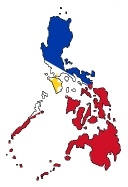It is encouraging to see that respectful dialogue between our two faiths is a goal which is being pursued worldwide. Here we see that a joint Islamic-Christian movement in the Philipines seeks to educate the youth to engage in peaceful inter-faith dialogue.
Source: Asia News
 |
Zamboanga – “Spreading a culture of dialogue between Christians and Muslims means educating young people to get to the bottom of their faith and encourage them to work together for the good of their communities”, says Fr Sebastiano D’Ambra, a missionary of the Pontifical Institute for Foreign Missions in Zamboanga (Mindanao) and founder of Silsilah, a movement for interreligious dialogue speaking to AsiaNews. Active since 1984, over the years Silsilah has become a beacon for Muslims and Christians in Mindanao, for forty years, victims of the war between Islamic rebels and the Philippine military. |
Fr. D’Ambra says: “After years of meetings with Muslim and Christian leaders, we realized that our task was not simply to speak of dialogue, but way to respond in a concrete to the reality around us.”
In 1986 Silsilah kicked started the Summer Course of Muslim Christian Dialogue to form young leaders of both faiths. For 25 years, the summer courses are organized every year between April and May and the classes continued even in during the most difficult for Christians in Mindanao, such as the murder in Zamboanga of Fr Salvatore Carzedda (PIME) in 1992.
“Over the years we have trained more than 2 thousand young people – says Fr D’Ambra – who now work as a leaders in various areas of the island, in turn creating groups and initiatives between the two religions. ” On 20 September, the movement opened a center for dialogue in Manila, in the district of Quiapo home to the Nazarene sanctuary and the Golden Mosque, symbols of the presence of the two religions in the archipelago.
In Mindanao the initiatives of the Summer Course has also affected areas with Muslim majority hostile to Christians and characterized by ongoing violence. In Basilan, a stronghold of Abu Sayyaf Muslim extremists, a few months ago a relationship between the bishop and high Islamic authorities began. They are working to address concrete problems of the city, led by some Silsilah graduates.
“We teach our youth the dialogue and respect for nature – said the missionary – explaining the passages of the Bible and the Qur’an that speak of these matters.” In Balun, a protected area in the center of the island, Christians and Muslims, have joined forces to block mining in the area. With the help of Silsilah volunteers they have collected signatures throughout Mindanao. In January 2010, more than 10 thousand people demonstrated in front of the headquarters of the Manila government against pollution and destruction of protected areas.
The concrete proposal of Silsilah and its work with the new generations has drawn even the most reluctant and conservative Muslim leaders to the movement. Recently the movement translated the letter sent to 138 Muslim scholars to Benedict XVI in 2006 to seek common ground for collaboration between Christians and Muslims into the local language.
Fr. D’Ambra noted that the publication of the document, together with the concrete testimony of Silsilah among the Muslims of Mindanao, many Islamic leaders began to question whether their communities are open dialogue with Christians.
“The letter is signed by many Islamic leaders of the world – he stresses – and this has also pushed even the most entrenched characters to consider the possibility of interreligious dialogue, love of God, love of neighbor, All content common to both faiths. ” In a meeting with more than 500 ulema that took place recently in Zamboanga, a prominent Islamic leader, who has never had direct relations with Silsilah, praised the movement citing passages on the relationship between Christians and Muslims in the Koran.
The priest said the opening of Islamic leaders is possible if dialogue is transformed from a simple strategy in the form of spirituality on which to base one’s life. For nearly 20 years the movement has proposed chastity and community life to young people as an opportunity to give one’s life to interfaith dialogue. The proposal is spreading even among Muslim women, who take a vow of chastity, and without leaving their families, begin the same spiritual journey of serious dialogue with God and neighbour.

